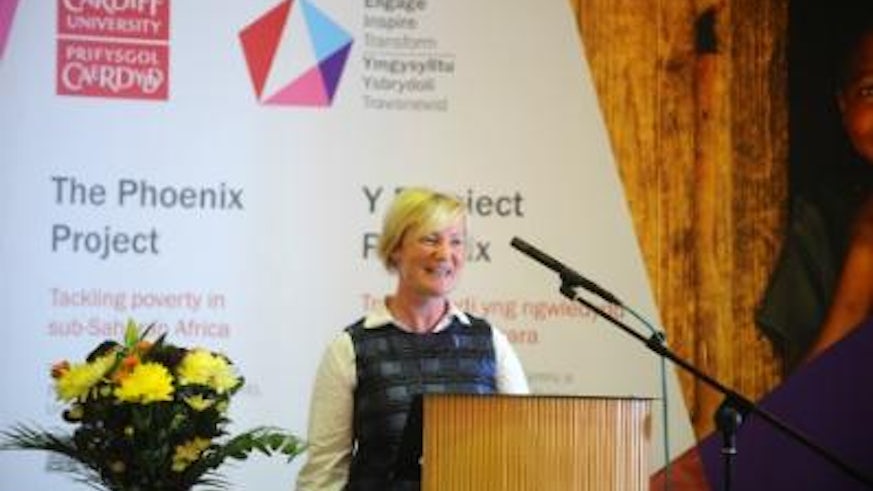University's work to save lives backed by a global health body
20 November 2014

The University's work to save lives in Namibia is being supported by a global health organisation which improves training for health workers in poorer countries.
Namibia has only two part-time medically qualified anaesthetists in a country of more than two million people.
The University's Phoenix Project, one of the five flagship engagement projects, is working with the University of Namibia and the Namibian health service to provide expertise to help train more anaesthetists.
The Tropical Health and Education Trust, which supports more than 200 health partnerships around the world, has now offered financial support to The Phoenix Project.
It will provide a grant to help enable senior consultant anaesthetists from the UK to teach on three intensive anaesthesia courses in three locations in Namibia next year.
Professor Judith Hall, of the School of Medicine, who is leading The Phoenix Project, said: "In Namibia, for over two million people, they have 19 medical officers for the whole country - the untrained anaesthetists - and they have two part-time anaesthetists.
"People travel huge distances for health care and they die on the way.
"In Cardiff, we have 160 anaesthetists for a population of around 300,000. It's absolutely scary and puts it into perspective.
"This grant is so significant and will help us save lives in Namibia."
The three intensive training courses will run in three locations in Namibia: the capital Windhoek, Rundu and Oshakati.
The Phoenix Project will then take the training further by helping set up Namibia's first post-graduate qualification in anaesthesia, in conjunction with the University of Namibia.
"The whole point is that Namibia will be producing its own medical students, and our presence has coincided with a desperate need for post-graduate education," said Professor Hall.
"You can't have obstetrics and gynaecology surgery without anaesthetists.
"Every country needs their own home-grown doctors because if you train them in Namibia, then they will stay in Namibia – and it's not just doctors but nurses and pharmacists.
"It's of crucial importance that we do this with them."
The grant for £9,000 was awarded by the Tropical Health and Education Trust, which works in partnership to improve education and training for health workers in low and middle-income countries.
Jane Cockerell, the Trust's chief executive, said: "The shortage of appropriately trained health workers in low and middle-income countries continues to undermine efforts to improve health services for the poorest and most disadvantaged people in the world.
"Working in partnership with colleagues overseas, the collaboration between Cardiff University and University of Namibia will improve knowledge and skills in anaesthesia in a country with almost no human resource in this critical area.
"The health professionals from Cardiff who volunteer their time, their energy and their expertise will be responding to a need identified by the developing country partner and will help build the long-term capacity of hospitals and health centres in Namibia to improve healthcare for the communities they serve."
The Phoenix Project is working in Namibia in tandem with the Welsh Government's Wales for Africa programme.
Phoenix's work involves everything from training medical staff and boosting health communications, to strengthening local languages and increasing maths skills among students.
The project has won the support of Namibia's Deputy Health and Social Services Minister, The Hon. Petrina Haingura, who backed the grant bid.